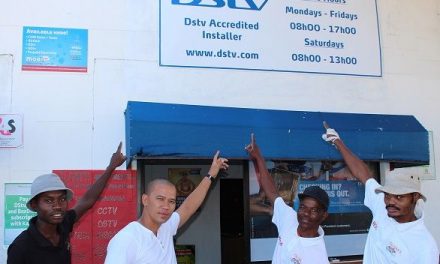
SME definitions refined
Small business owners will now be able to operate in an environment more conducive to starting up, developing and promoting SMEs. This comes after the Ministry of Industrialization , Trade and SME Development’s decision to review the National Small to Medium Enterprises (SME) policy and programme which was adopted by the government in 1997.
Various stakeholders from the financial and business sectors came together on Tuesday this week to discuss a new draft policy for micro, small and medium enterprises and found that the old policy was “flawed as it contained very little in terms of implementation, monitoring and evaluation”.
“Our intervention can not be guided by a 1997 policy. This needs to be revised and nationally agreed upon,” said Director of Communications and Financial Sector Development at the Bank of Namibia, Ndangi Katoma.
The revised National Policy on Micro, Small and Medium Enterprises in Namibia is aligned to the national objectives as expressed in Vision 2010 and the National Development Plans as the Industrial policy and its recent adopted implementation, framework and strategy (Growth at Home).
It proposes an updated definition for MSMEs, addresses the challenges faced by MSMEs and offers responses aligned to the new paradigms with respect to MSME financing and business advisory support services.
The new policy defines MSME according to two criteria; the number of employees and annual turnover. A micro business is defined as having is up to ten employees and an annual turnover of up to N$300,000. A small business has 11 to30 employees and an annual turnover of up to N$3 million.
A medium business has 31 to100 employees and an annual turnover of up to N$10 million. Any business exceeding these criteria is regarded as large.
The new policy also emphasises stronger implementation guidelines, defines the appropriate national institutional framework at the meso level and offers suggestions for a comprehensive monitoring and evaluation system.
“The small and medium enterprise (SME) policy will hopefully capture the new dynamics of this crucial sector and translate into more opportunities for small businesses”, said Deputy Permanent Secretary of the Ministry of Industrialisation, Trade and SME Development, Dr Michael Humavindu.
According to the new policy one of the challenges faced by MSMEs is the inability to get financing. “MSMEs are regarded by creditors and investors as high-risk borrowers due to insufficient assets and low capitalization, vulnerability to market fluctuations and high mortality. As a result very few MSMEs can access funding that may foster development”, states the draft policy.
Other constraints for small businesses include having to deal with a lot of red tape when it comes to business registration, access to land, access to and high costs of utilities and skills, crime, global competitive markets, access to technology and research and development.











































